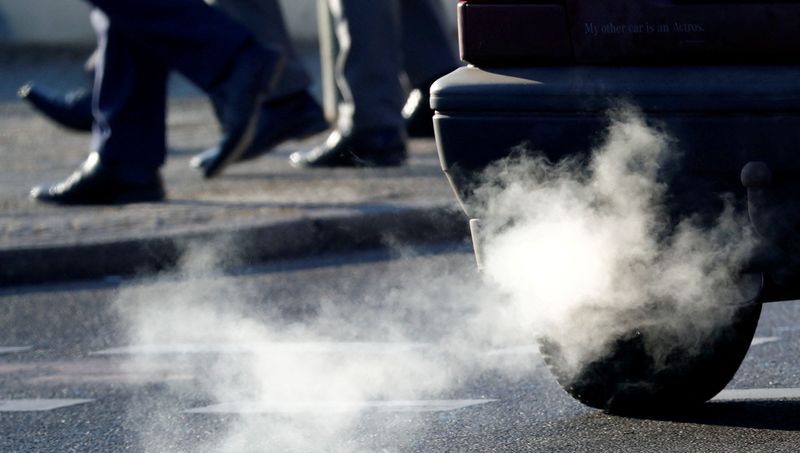By Kate Abnett and Miranda Murray
BRUSSELS (Reuters) -European Union countries have delayed a planned vote next week on the bloc's landmark law to end sales of new CO2-emitting cars in 2035 after Germany questioned its support for the rules.
No new date for the vote was given and a spokesperson for Sweden, which holds the EU's rotating presidency, said EU countries' ambassadors would return to the topic "in due time".
After months of negotiations, the European Parliament, the Commission and EU member states last year agreed to the law, which would require all new cars sold in the EU from 2035 to have zero CO2 emissions - effectively making it impossible to sell combustion engine cars from that date.
But EU countries still need to rubber stamp the decision before it can take effect. EU countries' ambassadors on Friday cancelled the vote that had been planned for March 7, the spokesperson for Sweden said.
That has put the law on ice days before it was due to receive final approval. An attempt to block or change an EU policy this late in the lawmaking process is highly unusual.
German Transport Minister Volker Wissing reiterated on Friday that the use of synthetic fuels should remain possible after the 2035 deadline and that the European Commission's promised proposal on how to make this happen was still missing.
"We want climate-neutral mobility", and to do so means being open to all conceivable technologies, he told a news conference.
A non-binding section of the EU law says the Commission will make a proposal on how vehicles running on CO2-neutral fuels can be sold after 2035, if this complies with climate goals. But Germany's transport ministry wants clearer assurances.
CO2 NEUTRAL
A Commission spokesperson on Friday said it "will consider the potential contribution of CO2-neutral fuels to reach climate neutral mobility", adding that it was in contact with countries to discuss their issues with the law.
"The transition to zero-emission vehicles is absolutely necessary to meet our 2030 and 2050 climate targets," the spokesperson added.
Transport accounts for nearly a quarter of EU emissions and has bucked the EU's overall trend of falling CO2 output over the past three decades, threatening to thwart the bloc's targets to slash planet-warming emissions.
Italy, which has previously said it will vote against the EU cars law, on Friday welcomed the postponement of the vote.
"Italy has a very clear position - electric (cars) cannot be the only solution for the future," Energy Minister Gilberto Pichetto Fratin said, adding that vehicles running on "renewable fuels" should be considered an "equally clean" option.
Germany's FDP has long been an advocate for climate-neutral synthetic fuels, also known as e-fuels, arguing their use would enable the continued use of combustion engines.
But the country's environment ministry, led by the Greens, has said Germany should stick to the deal and not back away at the last minute.
Audi Chief Executive Markus Duesmann backed that position, saying turning away from the phaseout risked leaving the industry in limbo. "And that would be fatal for the car industry," he told SPIEGEL magazine.
"Audi has made a clear decision: We are phasing out the internal combustion engine in 2033 because the battery-electric vehicle is the most efficient method for individual mobility," Duesmann said in an interview published on Friday.
If Germany's coalition government cannot agree a position, it would have to abstain. Such an outcome, along with some resistance from Italy and some eastern European countries, could throw the whole EU ban into question.

European Commission President Ursula von der Leyen will attend a German cabinet meeting at the Schloss Meseberg palace on Sunday, where the topic is likely to be discussed.
EU lawmakers already gave the deal their final approval last month.